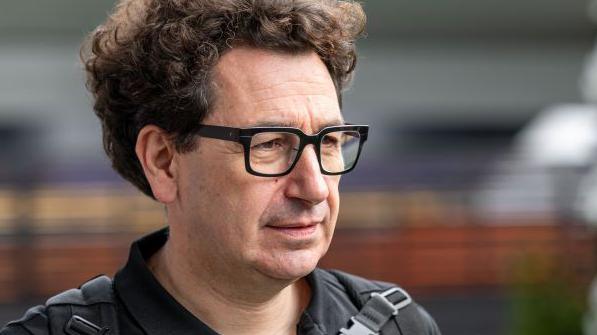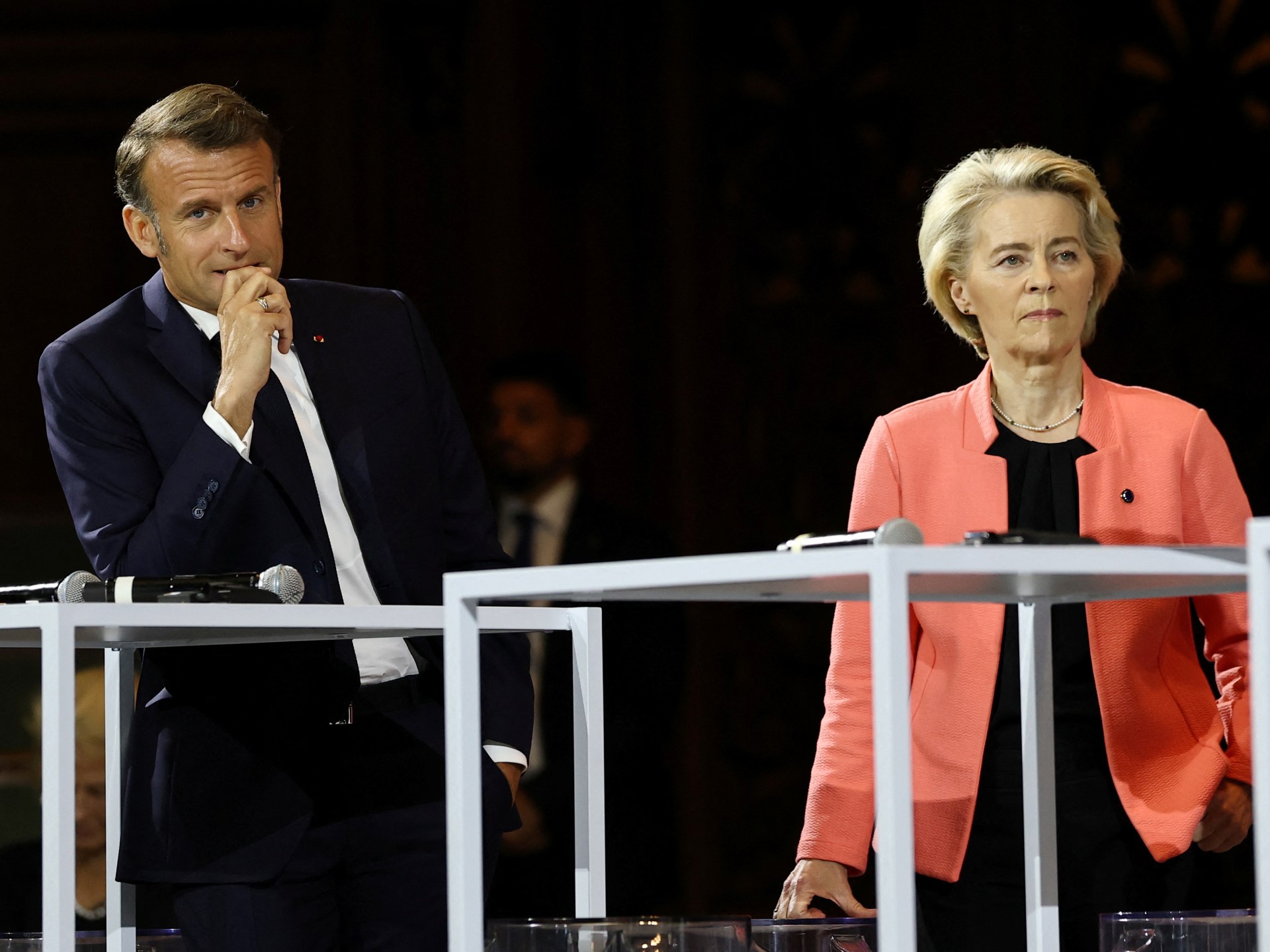I am no stranger to political repression and censorship. I have lived in Germany for five years now, and as a Palestinian journalist involved in pro-Palestinian advocacy, I have experienced repeated harassment at the hands of the German authorities.
My husband, a German citizen, and I, an American citizen, have grown accustomed to being held for hours at a time, subjected to invasive interrogations about our travels, and having our belongings thoroughly searched without clear justification. But we were shocked to find out that these tactics, designed to intimidate and deter, have now been taken up by the United States to target Palestinians amid the ongoing genocide.
I always knew that citizenship offered only limited protection, especially when dissent is involved. But deep down, I still believed that freedom of speech, the right to speak without fear, meant something in my country of birth.
I was wrong. The harassment we endured on March 24 upon arriving in the US shattered that illusion. Our Palestinian identity, our political work, our family ties – all of it makes us permanent targets, not just in Germany, but now in the US, too.
Prior to departure, while we were at our gate in Frankfurt airport, four agents approached me and identified themselves as officers from the US Department of Homeland Security (DHS). They said they were specifically looking for my husband, who had just stepped aside to buy water and juice for our sons.
“We just want to make sure your ESTA visa is in order,” one of them said.
They took his passport, flipping through it and photographing every single page while one of them stayed on the phone, relaying information. They asked about our visit to Gaza in 2022, after seeing the Rafah border stamp.
“Where did you go in Gaza?” one agent asked.
“Khan Younis,” my husband replied.
“Where does your family live now?”
“All over,” he said. “They’re living in tents across the Strip, you know, because of the war.”
“What did you do while you were there?”
“Visited family,” he answered.
It was clear we were targeted. I did not see any other passengers undergoing a similar check. This meant that either DHS was actively researching passengers before their departure to the US, or – even more troubling – the German authorities were communicating directly with DHS to flag the background and political activity of “suspect” travellers.
Upon arrival at Newark airport in New Jersey, my husband and I were separated and individually interrogated, each of us still holding a sleeping child. The men questioning us did not identify themselves; I believe they were DHS agents, not border police.
They first asked me about the purpose of my trip and my travel to Gaza. They wanted to know who I had met in Gaza, why I had met them, and whether anyone I encountered was affiliated with Hamas. At one point, an officer deliberately became ambiguous and instead of referencing Hamas, asked if “anyone from [my] family was a part of the government in Gaza”.
At one point, they asked whether I experienced violence from Israeli soldiers, to which I responded: “Israeli soldiers weren’t in Gaza in 2022.”
“Did anyone in your family experience violence during this war?”
“Yes,” I responded. “Fifty were killed.”
“Were any of them Hamas supporters?” was the response I received.
As if political affiliation could justify the incineration of a family. As if children, elders, mothers, reduced to numbers, must first be interrogated for their loyalties before their deaths can be acknowledged.
They knew I was a journalist, so they demanded to know the last article I had written and where it was published. I told them that it was a piece for Mondoweiss about the abduction of Mahmoud Khalil, in which I also warned about the dangers of the Trump administration’s policies. This seemed to heighten their scrutiny. They demanded my email address, my social media accounts, and jotted down my phone number without explanation.
Then they took our phones. When I asked what would happen if I refused, they made it clear I had no choice. If I did not comply, my phone would still be taken from me, and if my husband did not comply, he would be deported.
When they finally returned our electronics, they issued a chilling warning to my husband: “You have been here seven times without an issue. Stay away from political activity, and everything will be fine.”
Subsequently, I was advised by legal counsel not to attend any demonstrations, not even by myself, during our stay. Our movements, our words, and even our silences were under watch, and anything could be used against us.
What happened to us was not random; it was intentional. It was meant to scare and intimidate us. Whether it is in Germany, in the US, or elsewhere, the goal of these tactics is the same: to make us feel small, isolated, criminalised, and afraid. They want us to doubt the worth of every word we write, to question every protest we join, to swallow every truth before it reaches our lips. They want us to forget the people we have lost.
Fifty members of our family were murdered in the US-backed genocide in Gaza. Fifty souls, each with their own dreams, laughter, and love, extinguished under the roar of bombs and the silence of the world. Our family’s story is no different from thousands of others – stories that vanish from headlines but live forever in the hearts of the survivors.
They expect us to carry this unbearable weight quietly, to bow our heads and continue living as if our world were not ripped apart. But we do not bow.
And that is why they fear us; they fear a people who refuse to disappear. Palestinians who dare to speak, to organise, to simply bear witness are marked as dangerous.
I was warned that speaking about our experience at the airport would make the next encounter even harsher, even more punishing. But we must remember: there is nothing this state can do to us that can compare to what is being done to the people of Gaza. Our passports are only paper. Our phones are only metal and glass. These are things they can confiscate, things they can break. But they cannot take away our voices, our memories, and our commitment to justice.
On our way out, the officers asked my husband one last question: “What do you think of Hamas? Are they good?”
He responded: “My concern is fighting a genocide that has taken the lives and freedom of my family and my people. Anything else, I am not interested in answering.”
That should be all of our concern. Nothing should distract us from the urgent, undeniable truth: a people are being slaughtered, and our responsibility is to stand with them.











